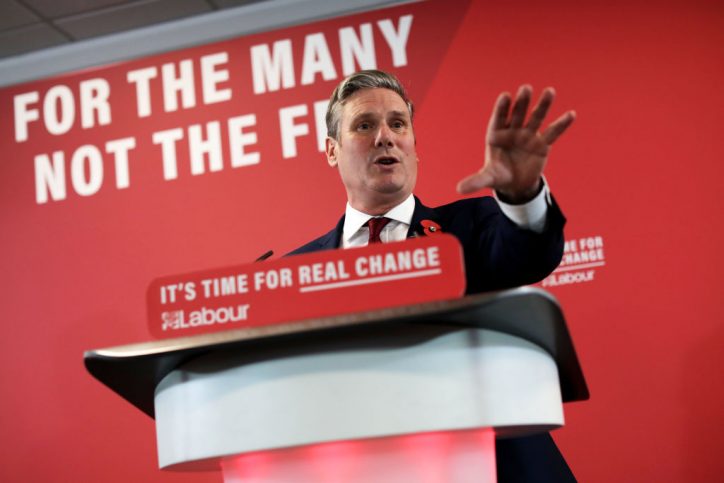The Labour Party suffered a terrible defeat on December 12 and now has fewer MPs in the Commons than at any time in living memory.
This shouldn’t need saying given that the results of the general election were very much the opposite of a state secret, but the startling behaviour and utterances of most of Labour’s leading lights since shows that it clearly does.
Let me take you through a few highlights of Labour’s response to this thrashing: Jeremy Corbyn asserted that the party “won the argument” at the election; Rebecca Long-Bailey – the favoured Corbynista candidate to replace him – claimed in an article just the other day that Labour’s “transformative agenda is principled and popular”; deputy leadership candidate Angela Rayner objected to Iain Duncan Smith getting a knighthood on the (false) grounds that he had laughed in the Commons “as he passed welfare cuts to the most vulnerable”; Labour MP Nadia Whittome claimed that “millions of people” have seen “loved ones killed” by the policies of IDS; David Lammy reacted to a sketchily-sourced and almost certainly bogus claim that 5,000 Britain First members had joined the Tories by stating that “Hard right entryists have turned the Conservative Party into a revolutionary sect”; leadership contender Sir Keir Starmer visited the town of Leigh – which has just elected a Tory MP – and concluded that it and towns like it “desperately need a Labour MP and a Labour government”.
Oh and all of these people and in fact every putative Labour leadership candidate voted against the EU Withdrawal Agreement Bill just before the Christmas parliamentary recess.
One thing in particular unites these responses and it is the notion that the programme, personnel and underlying attitudes that Labour presented to the country were fundamentally correct and praiseworthy, while the Tories are bad people with extreme policies.
This is absurd. The election was a test of which party, programme and personnel reflected best the overall character and outlook of the nation. And the Tories whipped Labour’s backside – 14 million votes to 10 million votes, 365 seats to 203.
By seeking to depict the winning Conservatives as off-beam and extreme, Labour’s leading lights are merely emphasising their own distance from the centre of public opinion. By telling people in Leigh and elsewhere what is good for them in the face of their actual decision, Starmer gives off the unmistakable and unpleasant odour of political entitlement – the same stench that surrounded his push for a second referendum on Brexit.
That senior Labour figures apparently view Conservative opponents as devils out to wreak death and destruction and cackling with joy as they do so is nothing less than a form of political derangement. What message does it send to all those who voted Tory and whose support Labour will presumably be seeking again at a future date?
And for anyone whose party has just been taken to the cleaners at an election to brand the winning side a “revolutionary sect” implies basic innumeracy as well as a stubborn refusal to hear what the public is saying.
Having lost its reliable seat bank in Scotland half a decade ago, Labour has now lost the post-industrial towns of its English heartlands too. At 203 MPs, it has fewer seats even than Michael Foot managed in the disastrous defeat of 1983.
For any new leader to turn this situation around in a single parliamentary term seems almost impossible – even if that leader were to make all the right moves and take all the correct decisions, the Tories are surely bound to hold onto some kind of a majority in 2024.
But it’s worse than that for Labour. They are already on course to lose the next election so badly that the one after that will be a write-off too. Through its ridiculous posturing and displays of unearned pride, a party that hasn’t governed since 2010 is already putting the prospect of taking power by 2028 beyond its reach.
A Labour Party that was serious about winning back power would already be reassessing its attitude towards the integrity of the nation state, respecting democratic outcomes, border controls, the merits of free enterprise, the punishment of criminals, pride in our armed forces and emphasising communitarian values over the demands of factional identity politics.
Instead we have Rebecca Long-Bailey insisting the party’s current agenda is ‘popular’ and her flatmate Angela Rayner sticking metaphorical pins in a voodoo doll of Iain Duncan Smith.
On election day, millions of people were motivated to vote Conservative through a fear of Labour and its agenda. Now, less than three weeks later and with a Tory landslide secured, they are starting to laugh at it.







Comments